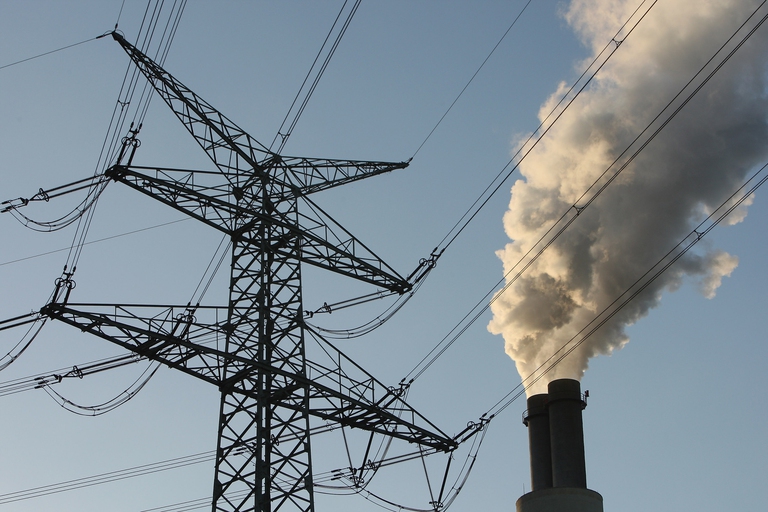
The 26th edition of the United Nations Climate Change Conference, COP26, will be held in Glasgow, Scotland in November 2020. The pre-COP will take place in Milan, Italy.
In vista della Cop 21 di dicembre decine di Stati hanno svelato i propri obiettivi di riduzione della CO2: secondo i climatologi non basteranno.
Three months before the world’s conference on climate, COP 21, will take place in Paris, during the first two weeks of December, a number of countries presented their plans to cut CO2 emissions. However, these pledges had been deemed inadequate by a team of climatologists that gathered on 8th July in the French capital.

“The pledges submitted up to now will reduce global CO2 emissions by 3 or 4 billion tonnes a year, accounting for 15-20% of the countries’ effort needed to prevent global average temperature from increasing by 2°C by 2100”, Michel Den Elzen, senior climate policy analyst at the Netherlands Environmental Assessment Agency said. “It’s hard to compare the countries’ efforts – Indian climatologist Navroz Dubash stated – every nation adopted a different approach, date of reference, type of funding, technology as well as legal status”.
Up to now, 49 countries (including 28 EU nations) officialised their commitments: they’re responsible for 58.1% of current global emissions. Australia announced to cut 26 to 28% of its greenhouse gas emissions by 2030 compared to 2005. Japan pledged to reduce them by 26% too compared to 2013. The EU, instead, will try to achieve a reduction of as much as 40% compared to 1990; Russia counts on obtain a 30% decrease of CO2 emissions by the same date of reference. The U.S. committed to cut emissions by 26-28% compared to 2005 (the same date of reference chosen by Canada). But Washington is the only State to pledged to do it by 2025 (the other States announced to do it by 2030).

Over the course of the COP21 negotiations it will be difficult to consistently assess the countries’ different pledges. On the other hand, giving governments ample freedom in choosing their level of commitment favours the success of the initial stage of negotiations: that in which the parameters to reduce emissions are decided.
Finally, we shouldn’t forget the case of China: Beijing declared that it will peak emissions by 2030: according to Den Elzen’s estimates, this peak would account for 15 billion tonnes of CO2 yearly, i.e. about 50% more than the ones generated at present. As a consequence, the Dutch researcher say that global emissions will top 58 billion tonnes by 2030, compared to 37 billion tonnes of 2012.
Siamo anche su WhatsApp. Segui il canale ufficiale LifeGate per restare aggiornata, aggiornato sulle ultime notizie e sulle nostre attività.
![]()
Quest'opera è distribuita con Licenza Creative Commons Attribuzione - Non commerciale - Non opere derivate 4.0 Internazionale.
The 26th edition of the United Nations Climate Change Conference, COP26, will be held in Glasgow, Scotland in November 2020. The pre-COP will take place in Milan, Italy.
Thanks to activists, the voice of the world’s peoples resounded through the COP25 like an alarm bell. Governments didn’t reach the results they demanded, but their cries and messages were stronger than ever, reaching even those who weren’t in Madrid.
Climate change poses a risk for millions. However, women are the most vulnerable to its negative consequences: a few simple considerations by the Italian Climate Network help us perceive the global implications of this.
The COP25 ended two days late and with very few steps ahead made. Climate negotiations in 2020 will be an uphill battle as political will clearly seems to be lacking, once again.
The last ten years have been the most “exceptional” and hottest decade ever, with extreme weather hitting people and ecosystems harder and more frequently. 2019 is also on course to becoming the second or third hottest year since records began.
Unite Behind the Science: this was the title of the conference held at the COP25 on 10 December. Greta Thunberg’s presence filled the arena, but this time it was scientists’ turn to speak.
25,000 delegates meet for the COP25 from 2 to 13 December. What can we hope this UN climate change conference, whose venue was changed from Santiago de Chile to Madrid, will achieve?
100 eminent people from all over the world, including Vandana Shiva, Naomi Klein and Noam Chomsky, have signed an open letter after the disappointing results of the COP24. A call-to-arms for climate against world leaders’ indifference.
The outcome of the COP24 in Katowice left many unsatisfied. Greta Thunberg, a young Swedish environmental activist, gave a harsh, heartfelt speech addressing world leaders.







